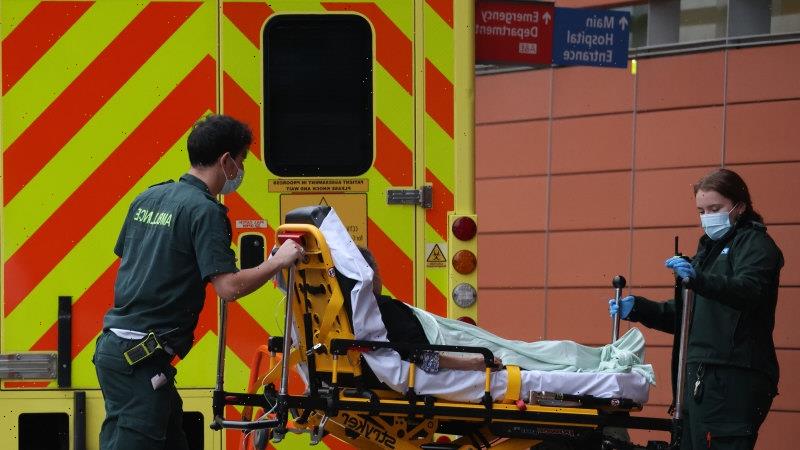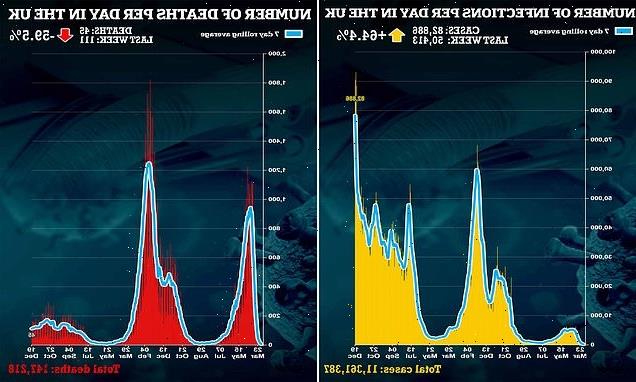SNOW is forecast to the hit the UK just in time for Christmas making many of us reach for the thermostat.
With energy bills already jumping in recent months, it's worth checking out what help you could get if you're struggling or on a budget.
Temperatures are set to plunge as low as -1C just in time for Christmas.
The Met Office says that freezing weather is due to hit from this Tuesday and snow is expected to follow.
Here's the help you can get to keep bills low as you turn the heating up.
Don't forget there are steps you can take to keep bills down too – like tweaking your thermostat.
Cold weather payments – up to £25 a week
If temperatures plummet below zero that could trigger a payment of £25 automatically.
Cold weather payments are made if it hits freezing between November 1 and March 31, to help you pay for the increased energy costs.
Most read in Money
WIN BIG Brits urged to check tickets for the £4 million lottery jackpot as numbers revealed
Struggling households could get up to £200 free cash this winter – how to apply
I eat Monster Munch in bed…but I won't put that on Tinder, says Shona McGarty
Music lovers to clean freaks… we have your Christmas gifts covered
The temperature will have to stay that low for seven consecutive days before the cash is handed out.
So far the payment has not been triggered anywhere because the weather hasn't gotten that cold – so far.
You can check if the payment applies to you using the government's postcode checker any time between now and the spring.
You must already be getting certain benefits to qualify, including pension credit, income support, jobseeker's allowance, income-related employment and support allowance, and Universal Credit.
You won't qualify if you are in a care home or subject to immigration control.
You don't need to apply for the extra payment – it's paid automatically into your bank or building society account within 14 days of the cold spell ending.
Winter fuel payments – up to £300
One-off winter fuel payments from the government of between £100 and £300 are given to pensioners.
To qualify for the payout, you'll need to have been born on or before September 26, 1955 – the date changes every year.
You must also have lived in the UK for at least one day during the "qualifying week". This year, it fell between September 20 and 26, 2021.
The money is tax-free and won't affect any other benefits that you get, such as Universal Credit, but how much you get depends on your circumstances, like if oyu live alone or you get certain benefits
The payments are made automatically, usually between November and December.
If you're entitled to the payout but don't receive the cash by January 14, 2022 then you should contact the helpline on 0800 7310160 from England, Scotland and Wales.
You have until March 31 to make a claim for the missed payment.
You'll also need to apply if you qualify but don't get the the state pension because you've deferred it, so you will need to make a claim via the winter fuel payment website.
Warm home discount – up to £140 a year
The warm home discount is a one-off payment of £140 which is designed to help with the cost of your electricity bill through winter.
The money isn't paid to everyone automatically, you need to apply for it from your energy firm if you're on a low income.
The money is taken off your energy bill between September and March and
If you get the guarantee credit element of pension credit and are named on the bill you should automatically qualify for this benefit.
But if you're on a low income or struggling with bills then you'll need to apply.
Each provider has different criteria, so you should check carefully to see if it applies to you.
All suppliers must include some standard criteria, such as if you're on a low-income and you get certain means-tested benefits like income-related employment and support allowance.
Anyone who has moved to a new supplier because there's collapsed will need to make a new application for the cash.
The good news is many of the major suppliers are still accepting applications, so you should get in quick as there's a limited pot of cash.
Budgeting loans
You may be able to get a budgeting loan from the Social Fund to help with intermittent expenses.
You're more likely to be eligible if you receive pension credit, income support, income-based jobseeker’s allowance or income-related employment and support allowance.
Universal Credit claimants will need to apply for a budgeting advance – these are interest free loans, but must be paid back.
You will need to have been receiving benefits for more than six months before applying.
The payments are designed to help with intermittent expenses which are difficult to budget for, such as the cost of installing a prepayment meter or connection charges if you move home.
Grants and help from energy companies
If you’re in debt to your energy supplier, you might be able to get a grant from the British Gas Energy Trust to help pay it off.
This scheme is available to anyone – you don't have to be a customer – and you can find out more and apply here.
Several companies also offer a grant scheme for their customers including:
- Scottish Power Hardship Fund
- Ovo Debt and energy assistance
- E.on Energy Fund
- EDF Energy Customer Support Fund
The conditions of each scheme vary, so contact your energy provider to find out more.
If you need help, make sure you speak to your provider to see what they can do.
If you have a prepayment meter and you can’t top up – either because you are isolating or because you can’t afford to – your energy provider must help you.
For instance, it can let someone else top up for you, send you a pre-loaded top-up card, or increase your emergency credit limit.
Grants – to clear your arrears
You might be able to get help from your local authority through "housing renewal insurance" or through local welfare provision schemes.
Some might be able to help with heating costs or emergencies, such as a boiler breakdown.
Check to see what support your local authority provides and check whether it is a loan or a grant before you accept anything.
If there is a Home Improvement Agency, it may be able to apply to its charitable arm, the Foundations Independent Living Trust, for grants to help make your home warmer.
Some suppliers have charitable trusts or funding schemes to help when things go wrong.
Some only offer grants to their customers, while others such as British Gas have schemes that are open to anyone.
Household Support Fund
The government has given more money to local authorities to help those struggling pay for bills and food because of the coronavirus pandemic.
Under the Household Support Fund, councils can use cash in a number of ways to help people cover the cost of heating their home.
You can ask your local authority directly what help is available as it depends where you live.
Can you claim compensation if your gas or electricity is cut off due to snow?
Households who have power cut off due to the snow could be due compensation from firms.
How much you can claim depends on how long the disruption lasts – and how severe the weather is.
According to Citizens Advice, if a power cut is caused by bad weather, you’ll be entitled to £70 compensation if you’re without power for 24 hours, with another £70 paid for each of the following 12 hours up to a maximum cap of £700.
In really bad weather, the time-limit is 48 hours before compensation kicks-in – a severe storm is defined by regulator Ofgem as causing more than 12 times the average daily number of faults.
Energy expert and ex-British Gas worker Lynsey Jones shares her tips for savings on bills.
We pay for your stories!
Do you have a story for The Sun Money team?
Email us at [email protected]
Source: Read Full Article







